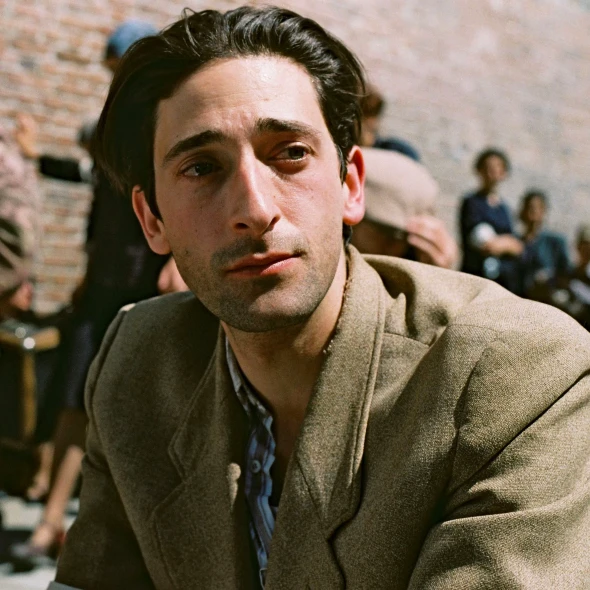
My father loves movies. When I grew up, we would watch wonderful classic films at home, and then he would take me to see contemporary movies. He took me to see Jaws in the theater at 6, and I don't think I could sleep ever again. Many years later, I was shooting a movie in Mexico, an action sequence where I "died" basically on my first day of shooting. I swam out into the ocean at the end of the day and I still had all this sweet, fake blood all over me. It was dusk and [a shark] came up and was bumping me, and followed me back and bumped me again. I got to relive that childhood trauma Spielberg inflicted on me.
My father and I also love martial arts films. Great swaths of films, films from the Shaw Brothers were a big part of my youth. We would go down to Chinatown and go to movie theaters and watch these films, which was really fun. Later, I shot an action film [2015's Dragon Blade] where I got to fight Jackie Chan in the Gobi Desert and do all these martial arts. Chased by sharks, fight Jackie Chan… I faced my childhood dreams and nightmares.
I really look to find people or experiences that are going to be mutually beneficial for myself and for others. I yearn to play flawed human beings who are heroic in spite of those flaws. I think those are the most interesting characters. And I look to work with people that elevate me and force me to grow. That's really what I aspire to do, to work with filmmakers that have vision and push me beyond my comfort zone and help create the space for us all to do something that is innovative or breaks beyond our previous limits.
The beauty of being an actor is that you can work for a long time. You can find that there's an ebb and a flow to things. I feel really grateful that, right now, it's a really positive time. I'm working with so many talented people and being given opportunities that are really interesting.
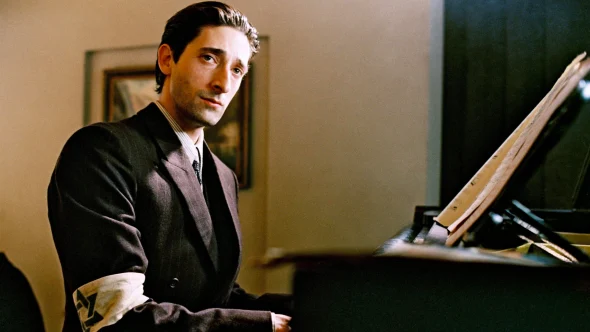
Directed by: Roman Polanski | Written by: Ronald Harwood
The Pianist was the greatest triumph on so many levels, and not just for my career — but as a man, understanding the work that was required to portray Szpilman. To represent loss at that magnitude and to be a part of the enormity of a film like that. It unsentimentally represents all that can go wrong in the civilized world, and has gone wrong historically. I think for young people to have a work like that existing is a remarkable thing. It’s a remarkable honor to be a part of that, to contribute to an understanding of how hatred and bigotry, if left unchecked, can just devastate humanity.
And it earned me the Academy Award, which is the pinnacle of an actor's career. It's a tremendous honor. I was the youngest recipient of the Best Actor award. My peers were all tremendously talented actors that I had great admiration for and they were welcoming of me. I'd been working for 17 years, but I was still just a working actor. I wasn't known, so that was the one film that I would say transformed most aspects of my life and career.
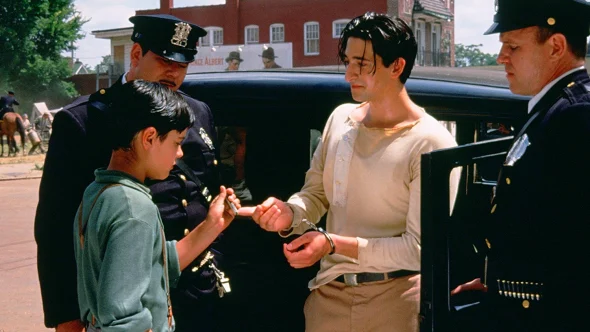
Written and Directed by: Steven Soderbergh
King of the Hill was a big break for me at 19. Deborah Aquila cast me; she is a big force in my life and really championed me and essentially gave me my first two roles in film. Making that movie as a very young man affected me in so many ways. Steven is such a remarkable filmmaker and my experience there led me to believe that all filmmaking projects would be somewhat like that. It was very creative and collaborative and fun and focused on the work. It had all that I aspired for and dreamt of, and not all projects can be that way. Not all directors have that sensibility. So, that was a meaningful one.
My stand-in on that film was a young kid at the time, my age, named Patrick Oldani, who lived in St. Louis and ultimately became one of my closest friends of my lifetime. He subsequently met his wife on one of his trips coming to see me — not directly related to me, but en route — and our lives were affected by one another very much. He's been a big part of my life. He unfortunately passed away last year. He was just such a gift.
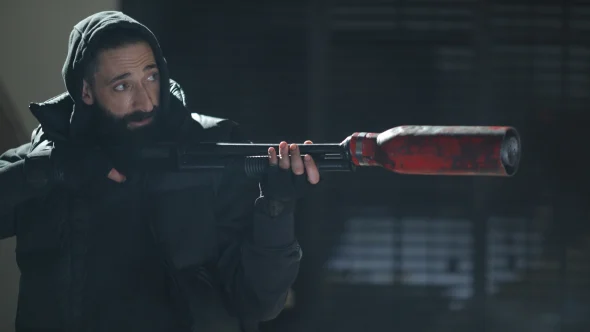
Directed by: Paul Solet | Written by: Paul Solet and Adrien Brody
This is a segue into Clean, a movie that I co-wrote and produced and acted in and scored. It was a film I did just before the pandemic, and Patrick was a big part of steering that ship. So, it kind of came full circle. From that earliest professional experience as an actor to my most fully immersive and committed involvement, he's been a part of it.
[Clean] feels like something I've yearned to do that I didn't really have the courage or the wherewithal to apply all of the creative and artistic yearnings that I have. I was very busy working as an actor and I didn't really have the confidence to write something. With that project, I just took the initiative. It took me some time to realize that it was really important to me, and I brought Paul Solet, my director and co-writer, on board and I started pulling the pieces together to make this.
I’ve been making music since I was 20, and I finally found a way to further enhance the storytelling and depth of the character with another force within me. I can’t really define how I make certain tracks or what the vibe is. But the character that I’m creating, stemming from the same kind of upbringing and influences in my life, growing up in Queens and seeing a lot of hip-hop culture, that all kind of came to a head.
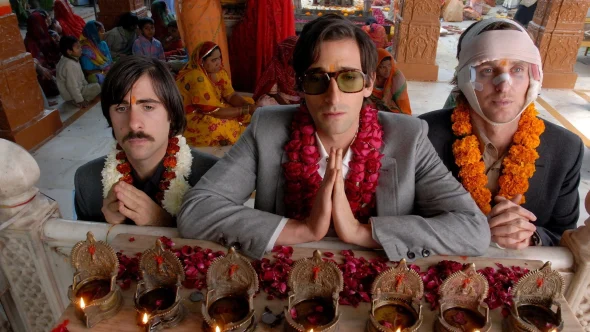
Directed by: Wes Anderson | Written by: Wes Anderson, Roman Coppola and Jason Schwartzman
Working with Wes Anderson, and the friendship that's ensued, is a big part of my life. That began on The Darjeeling Limited, which was a wonderful experience spending a great deal of time in India, traveling around together. We worked on a moving train, and he encouraged a comedic sensibility that I always love to incorporate into work. When you do certain films and roles and become known for them, I think it's harder for people to give you opportunities to find more levity. In talking about meaningful films like The Pianist and the implications of repercussions of those times in history, it’s not really the space to represent a more comedic aspect. So, I feel like that has been a big blessing.
We just finished the fifth film that we’ve done together in Spain [Asteroid City]. Our collaboration comes from a greater understanding of each other and of what Wes really gravitates towards. There are many ways that you could approach interpreting a moment, but if you understand your director's sensibilities more distinctly, you don't go around those other ways because they won't yield the results that he’s looking for. So, there's a shorthand, knowing the direction you’re heading towards anyway, and it's really exciting. It’s taught me a lot. I've had a lot of really amazing life experiences with him, and through him, and with an enormously talented cast that he assembles in each one of those films.
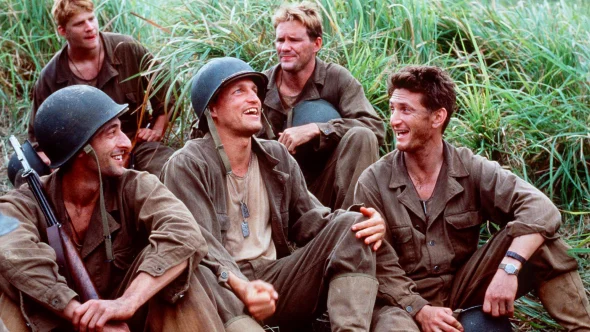
Written and Directed by: Terrence Malick
The Thin Red Line was a big influence in my career and my understanding of work. I was cast in that film as Fife, which is the persona of the author of the novel that Malick adapted. It was really the main voice of the story, and, ultimately, Malick made a very different movie in the end. This was a half a year of committing to portraying a soldier and trying to comprehend loss and fear and all that he faced, and when the movie came out, I was hardly in the film. It was surprising to me and my family. I devoted a lot of time to that. I was 23, 24 when it came out.
Fortunately, it had paved the way to my working with Spike Lee on Summer of Sam, which was a big break. I was working with Barry Levinson right after that on Liberty Heights. It was a really interesting time work-wise. And then I was faced with this sense of loss from something that I was the most committed to and had really, really high hopes for. It's the journey of being an actor. I always feel like that was a necessary step in my lifetime, to be able to have the depth to open myself up to the loss of Szpilman [in The Pianist]. It was a necessary stepping-stone for me, which I couldn't comprehend at the time.

